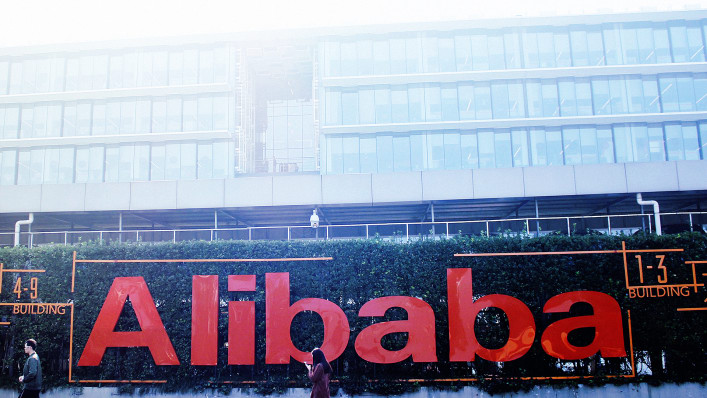Alibaba chairman Jack Ma was in Detroit this week for Gateway 17, his company’s biggest-ever event stateside, to discuss opportunities for Ameri
Alibaba chairman Jack Ma was in Detroit this week for Gateway 17, his company’s biggest-ever event stateside, to discuss opportunities for American small businesses to tap into the Chinese market through the world’s biggest e-commerce platform. But his chief creative officer Chris Tung was in the south of France unveiling a new suite of marketing data tools for all the brands and agencies gathered at the Cannes Lions Festival of Creativity, to better use Alibaba’s consumer data.
Over the last 12 months, Alibaba has worked with global marketers like P&G, Unilever, and L’Oreal to develop a system called Uni Marketing, a data-driven marketing engine. “We have a unique data pool that represents more than 500 million active shoppers on our platform in a multidimensional way,” says Tung. “Alibaba today is an ecosystem, it’s not just a marketplace. There are video sites, social media like the Chinese version of Twitter called Weibo, there’s location-based service that’s like Google Maps, we have pretty much everything. So from a data standpoint, it’s very interesting.”
Often, especially in Western press, Alibaba is dubbed “the Chinese Amazon.” But with the consumer-to-consumer marketplace Taobao, the business-to-consumer T-Mall, and Alibaba’s business-to-business, plus the social media, maps, Laiwang messaging, a cloud computing service, it’s a bit more far reaching than that.
“It’s very different from the Amazon model,” says Tung. “We don’t buy products from brands, we don’t buy and sell and take a margin, as a channel. We service as a marketplace, a bridge between the seller and the buyer, through data. A lot of transactions happen on our platform–$550 billion US worth of gross merchandise value a year. The largest commerce platform on Earth. It’s bigger than Walmart. Much bigger than Amazon.”
If you want to make analogies, Tung says think of Alibaba as a combination of Google, Facebook, and Amazon, in one. Brands set up and operate their own e-commerce flagship stores on the Alibaba platform. And global brands have flocked to it, including Nike, Apple, Coke, Uniqlo, Zara, and L’Oreal.
“We’re not only the dominant e-commerce platform in China, we’re also No. 1 in countries like Russia and Southeast Asia,” says Tung, adding they also have a presence in Spain and France, as well as some South American countries. “We’re strong in the emerging market, which represents growth for the brands. So the partnerships we have with global brands is very strategic in terms of driving their growth for today and tomorrow.”
The company recently announced it expects revenues to increase by up to a staggering 49% next year. That, combined with Ma meeting with Trump earlier this year and talking about creating a million U.S. jobs, has many predicting its got its eyes on Amazon’s (and Facebook’s, and Twitter’s…) backyard. But Tung says that the real opportunity in the U.S. right now is opening up the markets Alibaba is already strong in to American SMEs.
“We’re focusing on the U.S. as a B2B market, it’s more about servicing American SMEs, to bring good quality apples to China and vice-versa,” says Tung. “We think that’s a better priority, to open up our market to U.S. businesses. It makes a lot of sense for SMEs to have a gateway to the world. (Gateway 17) is all about introducing how Alibaba is going to export, to build a gateway to emerging markets, especially in China, for American business.”
The bulk of that new growth, according to Tung, will actually come from China itself. “There’s still so much growth potential there, as 80% of businesses are still mainly doing business offline, through brick and mortar alone,” he says.
Tung uses an unnamed major brand (spoiler alert: it’s Apple) to illustrate how the attraction to Alibaba from U.S. and global brands is primarily one of sheer scale, in reach and data.
“The most reputable mobile phone, that launched its seventh generation model last year, we helped them to find 3 million potential leads for people who would consider buying their phone,” he says. “If you do the calculation of 3 million buyers, that’s a huge number. And it’s impossible for you, out of 1.3 billion people in China, to find that 3 million through any traditional advertising campaign. But because we’re reaching 500 million people, there’s bound to be a few million who would be interested in buying that phone.”
As CMO of the world’s largest retailer, Tung says he’s got two main challenges. The first is to explain just what it is that Alibaba does. “It just takes a huge effort to communicate what we do and what value we can bring to the table,” he says. “The good thing is, once people know that, they come along. It’s a no brainer. It’s a great relationship — the more they work with Alibaba, the more data they’re going to have, the more possibility for growth for their company.”
fastcompany.com


